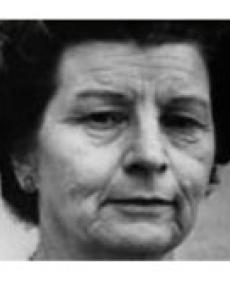
Jean Sinclair was born in 1908 and became involved in politics after the Springbok Legion protested against the National Party’s segregationist bills.
She was opposed to all forms of injustice, especially the Group Areas Act (1950) which enabled the apartheid government to enforce racial segregation in demarcated areas, and the Senate Bill in 1955 which led to the government being able to remove coloured people from the common voters’ roll.
In protest to the injustices imposed by the government, she resigned as a serving member of the United Party and established the Women’s Defence of the Constitution League (Black Sash) in 1955, of which she became the first president.
This organisation aimed at opposing group areas, resettlements and discrimination, and was called the “Black Sash” because of the black sashes that the women wore to symbolise the “death” of the constitution.
She and her league members organised marches to the City Hall in Johannesburg, vigils outside the Union Buildings in Pretoria and even a trip in convoy to Cape Town to deliver petitions to Parliament. They were often jeered at and harassed by people who did not agree with their views.
During the height of apartheid, when there seemed little chance of change, Sinclair’s leadership and courage inspired thousands of women to keep faith in the movement. They campaigned relentlessly against the pass laws and helped victims and their families who had been displaced by the system.
Sinclair has been publicly awarded for her work and has received an honorary doctorate from the University of Witwatersrand.
Jean Sinclair received the Order of the Baobab in Silver award posthumously in 2005. The Order of Baobab was also bestowed on her daughter, Sheena Duncan, who succeeded her mother as leader of the Black Sash in 1975.